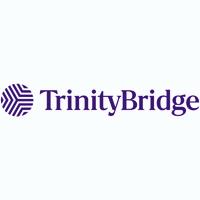Why lifetime and annual allowances will be an annual issue
But for employers rushing around to communicate the reducing allowances, provide those affected with support and change their pension contribution processes before the end of March, some of this headache will be an annual affair. Every year more people will drop into these brackets and so the communications and change to contribution processes will need to be yearly.

Despite knowing about the reducing lifetime and annual pension tax allowances since July 2015, many employers were still defining their solution and arranging communications and support until very recently, and some still are.
What is the issue?
As part of the ongoing pension reforms, from 6 April 2016 the lifetime and annual allowances for pension tax relief will be reduced as follows:
- Lifetime allowance will drop from £1.25 million to £1 million of the combined value of all pension pots.
- Annual allowance across all pension pots will taper from £40,000 per year to £10,000 per year as total earnings rise from £150,000 to £210,000. With the reducing annual allowance alone the change is expected to impact over 300,000 employees across the UK (HMRC 2015).
These changes will affect the highest earners in businesses. Doing nothing is not an option becasue lack of knowledge is no excuse and those affected could potentially incur significant tax bills.
However, some employers are going beyond just communicating these changes to their highest earners. They are taking the view that, becasue they have no knowledge of what pensions and other earnings their people may have outside of their organisation, they are communicating these changes to the whole workforce.
And it’s not necessarily just the highest earners that may be affected.
For example, where there are employees exercising share options (not from sharesave schemes), because this is treated as income in the year proceeds are received, then this can, for that year only, bring those staff into the annual allowance reduction bracket and give them an issue.
People with generous defined benefit pensions may be affected too as the value of their pension increases by more than the reduced annual allowance, so care will need to be taken with these people too.
What support are companies providing?
Employers are offering some or all of the following support for their people.
Most companies who are responding to these changes are ensuring they communicate the changes to staff affected, with many providing financial education alongside communications to ensure people understand the impact, their choices and alternative saving options going forward.
Some employers, recognising the significant impact on their most senior people are going further, providing them with one to one guidance clinics and advice.
And companies are also reviewing their pension contribution processes to reflect changes to the pension input period, transitional arrangements and to ‘flag’ limits for people who will potentially enter these lower brackets in the future. Some are taking this a step further and stopping all future regular contributions where pension funds are £1 million or more or where annual earnings are £130,000 or more. This then leaves it down to individual employees to make their own calculations and make additional contributions in line with their own limits or preferences.
But one rule won’t suit all and some employees are taking the position that they want to pay the tax and keep their contributions going.
An annual issue
As annual bonuses, other earnings like share options or just the ongoing increases in reward will bring more people into these lifetime and annual allowance limits every year. So employers need to use this year’s exercise as a template for what will become an annual chore.
This article was provided by Close Brothers.
Supplied by REBA Associate Member, TrinityBridge Limited, formerly Close Brothers Asset Management
TrinityBridge has been delivering workplace financial wellbeing programmes to some of the UK’s best-known employers for over 55 years.







